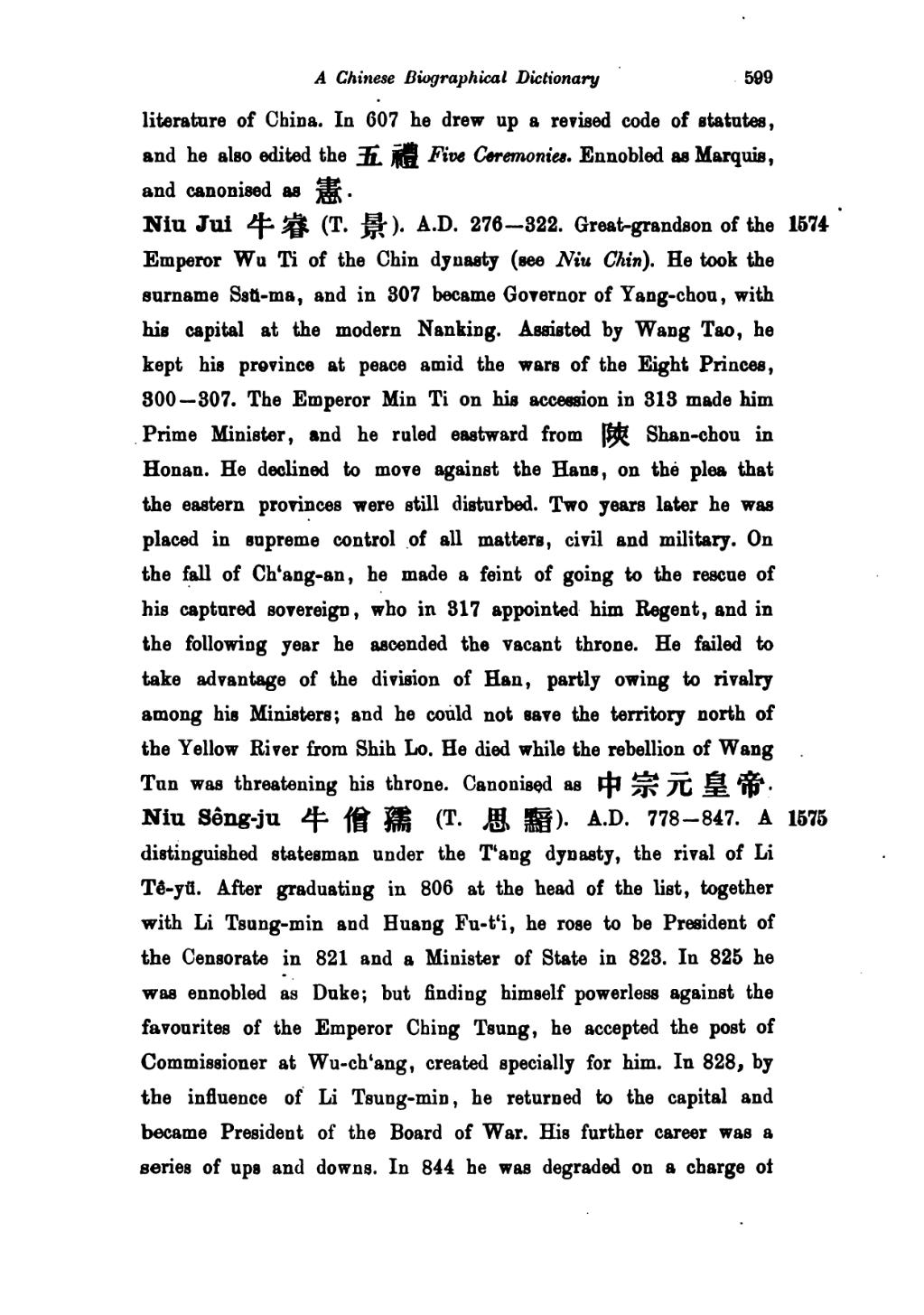literatare of CbiDa. In 607 he drew up a revised code of Btatutes, and he also edited the £ ^ Five Ceremonies. Ennobled as Marquis, and canonised as
Niu Jui ^^ (T. ^). A.D. 276-^322. Great-grandson of the 1574 Emperor Wa Ti of the Chin dynasty (see Niu Chin). He took the surname Ssti-ma, and in 307 became GoTernor of Yang-chou, with his capital at the modern Nanking. Assisted by Wang Tao, he kept his province at peace amid the wars of the Eight Princes, 800—307. The Emperor Min Ti on his accession in 313 made him Prime Minister, and he ruled eastward from ||^ Shan-chou in Honan. He declined to moye against the Hans, on the plea that the eastern proTinces were still disturbed. Two years later he was placed in supreme control of all matters, civil and military. On the fall of Ch*ang-an, he made a feint of going to the rescue of his captured sovereign, who in 317 appointed him Regent, and in the following year he ascended the vacant throne. He failed to take advantage of the division of Han, partly owing to rivalry among his Ministers; and he could not save the territory north of the Yellow River from Shih Lo. He died while the rebellion of Wang Tun was threatening his throne. Canonised as f^ ^ j^ ^ ^ . Niu Seng-ju 2^ j^ ^ (T. ^ ^). A.D. 778-847. A 1575 distinguished statesman under the T^ang dynasty, the rival of Li T^-yfl. After graduating in 806 at the head of the list, together with Li Tsung-min and Huang Fu-t4, he rose to be President of the Censorate in 821 and a Minister of State in 823. In 825 he was ennobled as Duke; but finding himself powerless against the favourites of the Emperor Cbing Tsung, he accepted the post of Commissioner at Wu-ch^ang, created specially for him. In 828^ by the influence of Li Tsung-min, he returned to the capital and became President of the Board of War. His further career was a series of ups and downs. In 844 he was degraded on a charge oi

